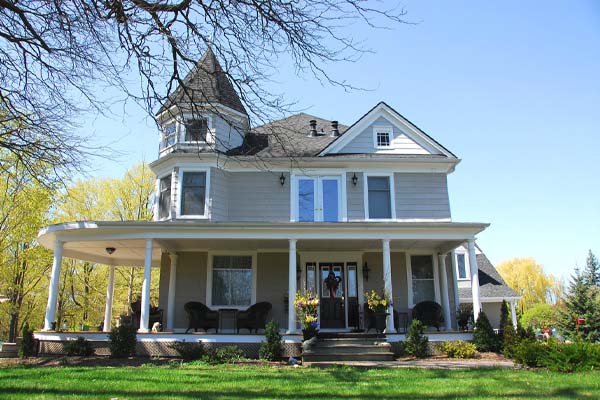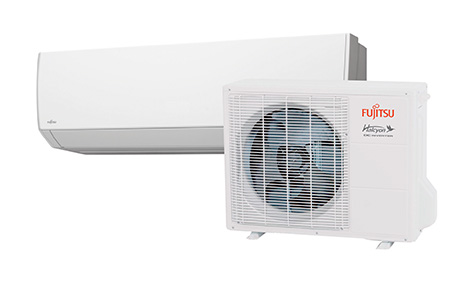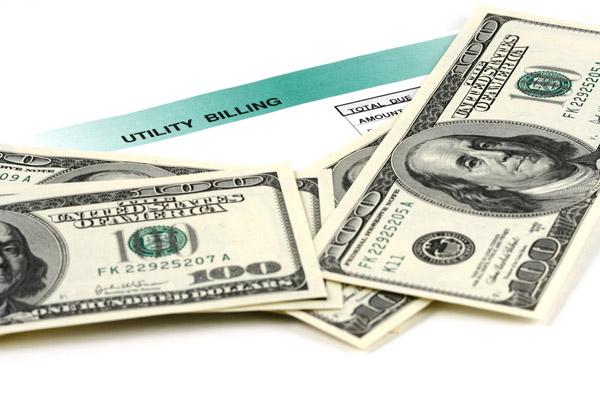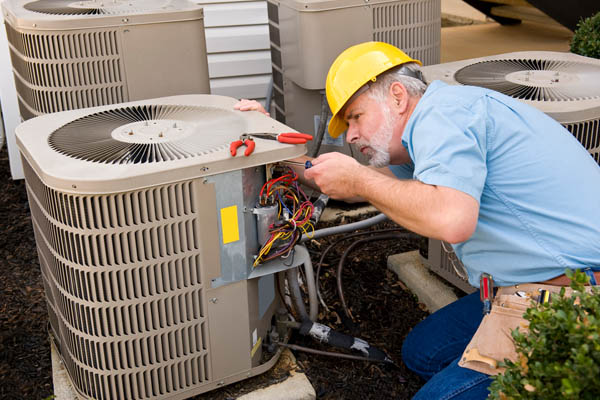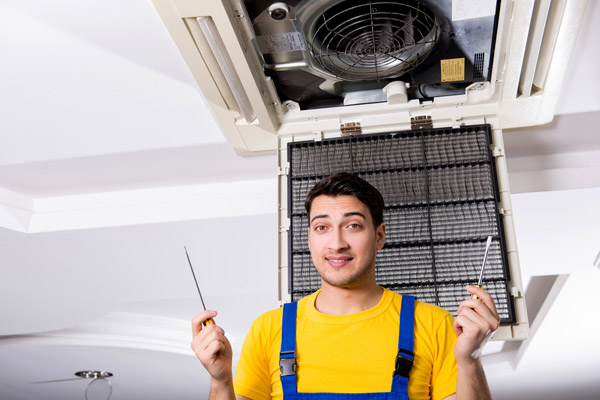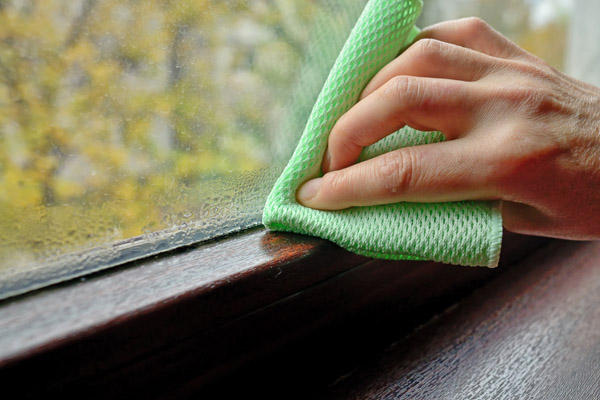
Anyone who lives in an area that experiences high temperatures or damp weather has, most likely, felt humidity before. It’s that uncomfortable feeling where the weather is muggy and damp. Humidity outdoors is bad enough, but inside the home, it can lead to a myriad of problems. Fortunately, a good HVAC system can help alleviate the problem. If you think you have high humidity in your house, read these tips on how to identify the problem and how to remove humidity.
What Is Indoor Air Quality?
Indoor Air Quality (IAQ) is the quality of air in and around buildings. The term is often used when talking about how air quality relates to people’s health. Poor indoor air quality can cause health problems such as difficulty breathing, allergic reactions, and symptoms that are similar to the flu. Even worse, people who are exposed to indoor air pollutants for long periods of time may develop respiratory diseases. This is why it is so important to maintain high indoor air quality standards.
How High Humidity Levels Impact Your Indoor Air Quality
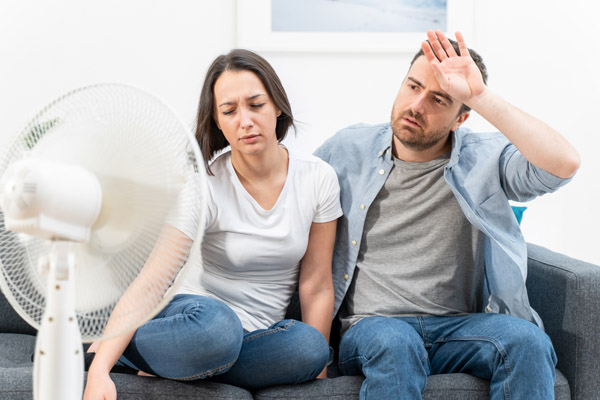
According to the Environmental Protection Agency, high humidity is one of the major factors that contribute to poor air quality. This is because humidity creates the perfect environment for mold and mildew to grow. When mold and mildew permeate the walls, carpets, and other porous surfaces, they release spores into the air that can be dangerous to humans. Some common symptoms of mold infestation include headaches, skin rashes, eye irritation, and lung infections. In addition, houses that are excessively humid are more susceptible to dust mites and other allergens.
Signs Of High Humidity In Your Home
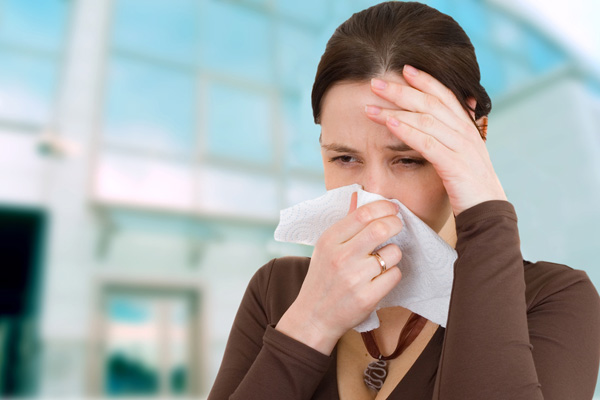
Even if you use an HVAC or air conditioning system, the humidity levels in your house may be too high. These are a few symptoms of high humidity in the house:
- You constantly sweat even though the air conditioning is on or your skin feels clammy
- You have trouble breathing
- Your allergies are acting up
- The windows are fogged up, and there is condensation on the glass inside
- Your house smells musty
- Your walls or ceilings look damp in certain areas or have water stains
- You see mold growing on the ceiling, walls, or objects in your house
- There are cracks around your window and door frames
- The wood inside or on the outside of your house is rotting
The Effects Of High Humidity
High humidity not only causes potential health problems, but it can also wreak havoc on your home. The excess moisture in the air can cause wood to start rotting. This issue, in turn, can cause structural damage to your home and create openings for pests like rats, termites, and cockroaches. Other high humidity effects include cracking of door frames and window frames and damage to porous household items such as books, carpets, and clothing.
Removing Humidity From Your Home
How Can My Air Conditioner Remove Humidity From My Home?
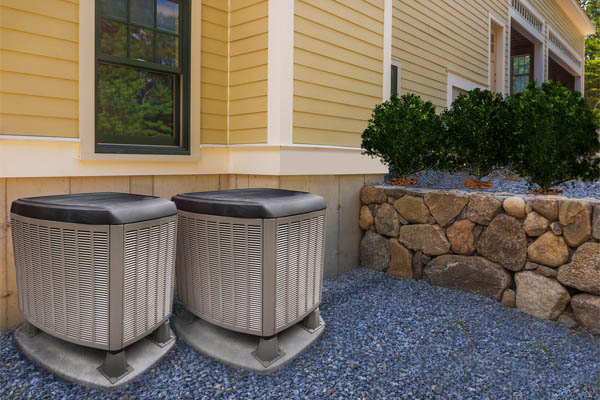
An air conditioner not only blows cool air into your house, it also pulls hot, humid air out. Your HVAC system contains an evaporator coil that condenses water from the air and sends it out of the house via a drain. If your air conditioner system is working properly, it should be keeping your house at the optimal humidity level. So what should humidity be in the house with air conditioning? The EPA says that 30% to 50% humidity is ideal. Anything higher or lower, and you may have air conditioner humidity problems.
Dehumidifier Vs. Air Conditioner: Which Works Best?
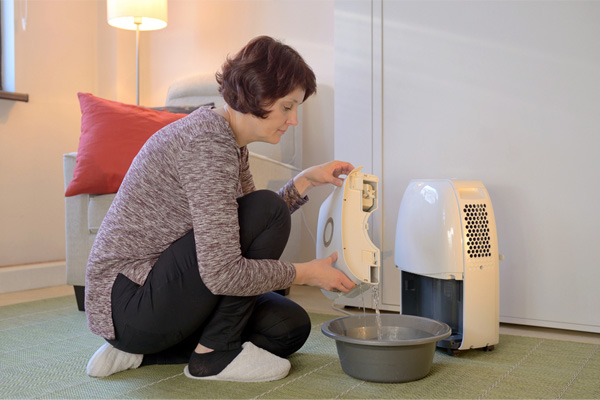
Many people ask whether an air conditioner vs. dehumidifier is better for removing humidity. Basically, a dehumidifier removes the moisture in the air, while an air conditioner removes the excess moisture and cools the air. A portable dehumidifier is fine for removing moisture in one specific part of the house, but an HVAC system is a better system for cooling large areas. In addition, an air conditioner has an air filter that can help screen out pollutants. A whole-house dehumidifier is ideal for when you want to use a dehumidifier with an air conditioner. It works with your HVAC system to pull out hot moist air and lower the temperature in your house.
Your Air Conditioner & Humidity
An air conditioner can significantly reduce humidity in the home by extracting the moisture from the air and releasing it outside the house. When used in conjunction with a whole-house dehumidifier, you can achieve and maintain humidity levels between 30% to 50%, which is recommended by the EPA for optimum health and safety. Be sure to schedule regular HVAC tune-ups to ensure your air filters, ducts, and evaporation coils are working properly. If you suspect that you might have an air-conditioning humidity problem, be sure to call an expert to assess the situation and make any necessary adjustments.
Call Point Bay Fuel For Expert HVAC Services

Point Bay Fuel offers superior heating and cooling services in Ocean and Monmouth counties, New Jersey. We hire the best NATE certified technicians who can provide you with excellent HVAC tune-ups, repairs, installations, and replacements. Each of our techs has the knowledge and experience to service your HVAC system correctly.
Point Bay Fuel guarantees the most competitive heating and cooling service costs in the area. Our maintenance services can improve your comfort, increase your energy efficiency while reducing your home cooling costs. They also improve your indoor air quality. If you happen to need an HVAC repair or replacement system, we can service your system while staying within your budget. We back all of our work with a guarantee to ensure your satisfaction. To schedule an air conditioner tune-up or service appointment, give Point Bay Fuel a call today. We offer free, in-home estimates.
Contact us now by calling (732) 349-5059 to speak to one of our home comfort specialists!
The post How Does My AC Remove Humidity In My House? appeared first on Point Bay Fuel.
